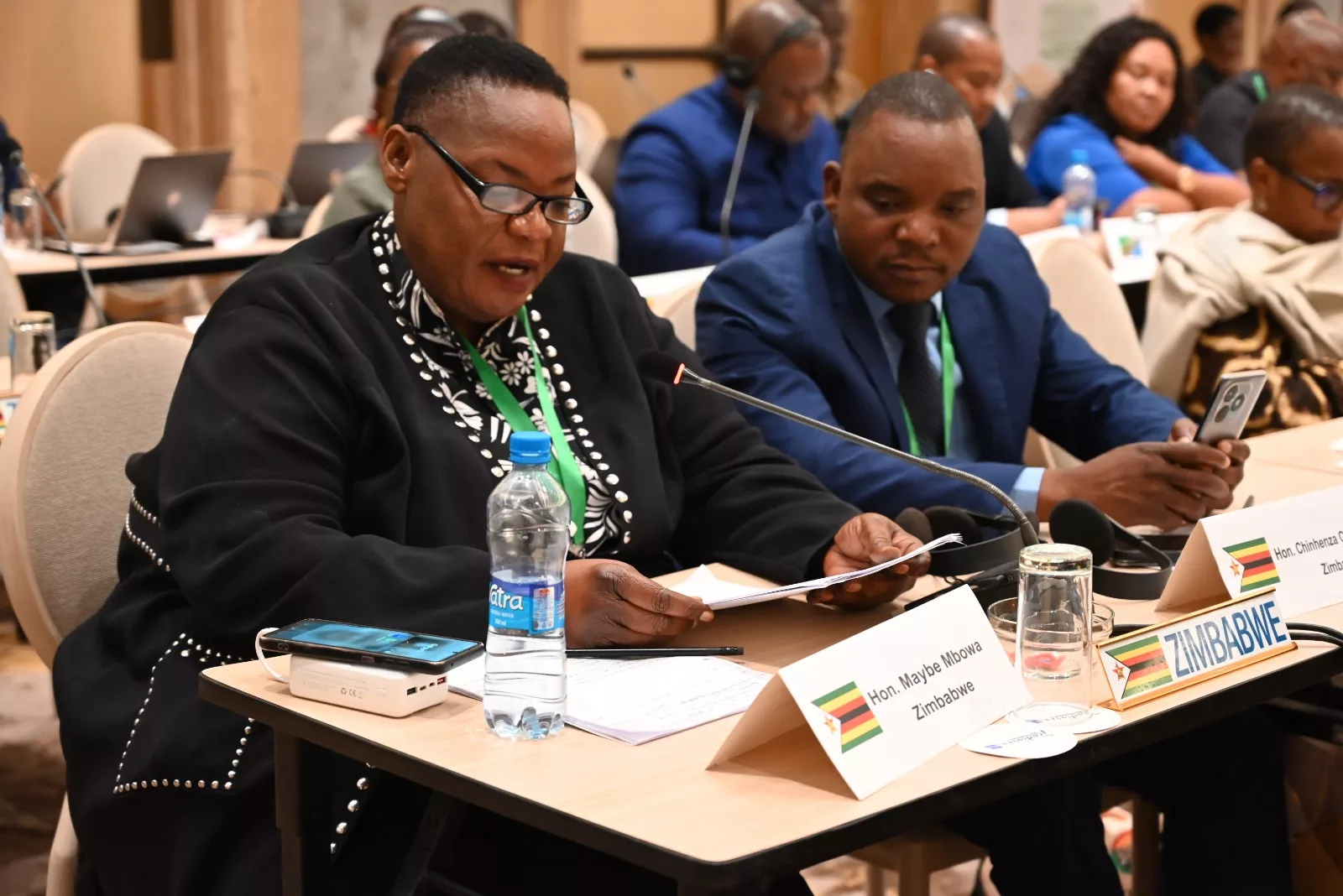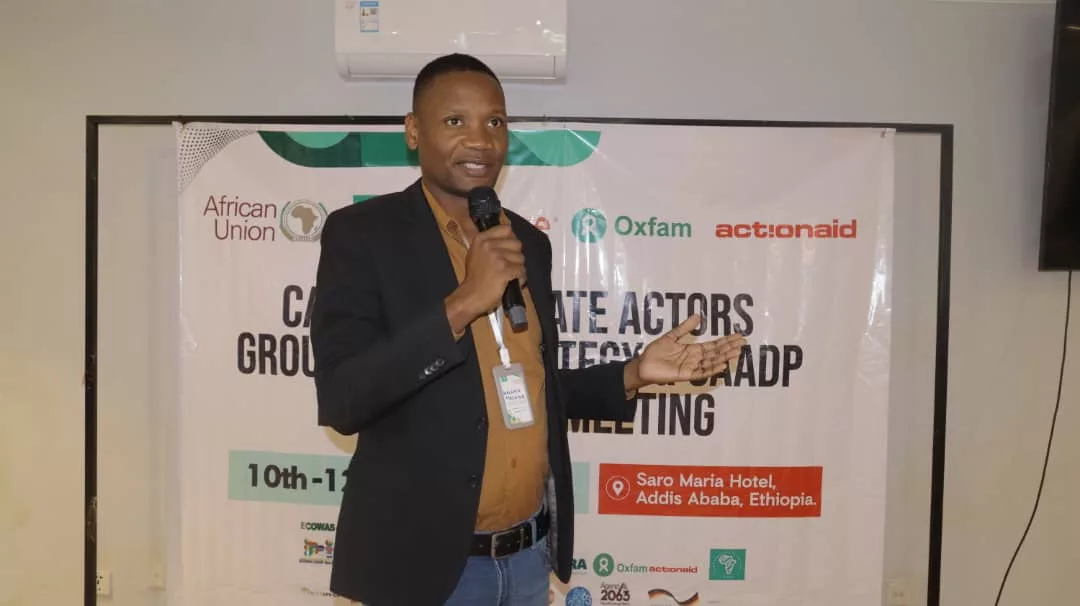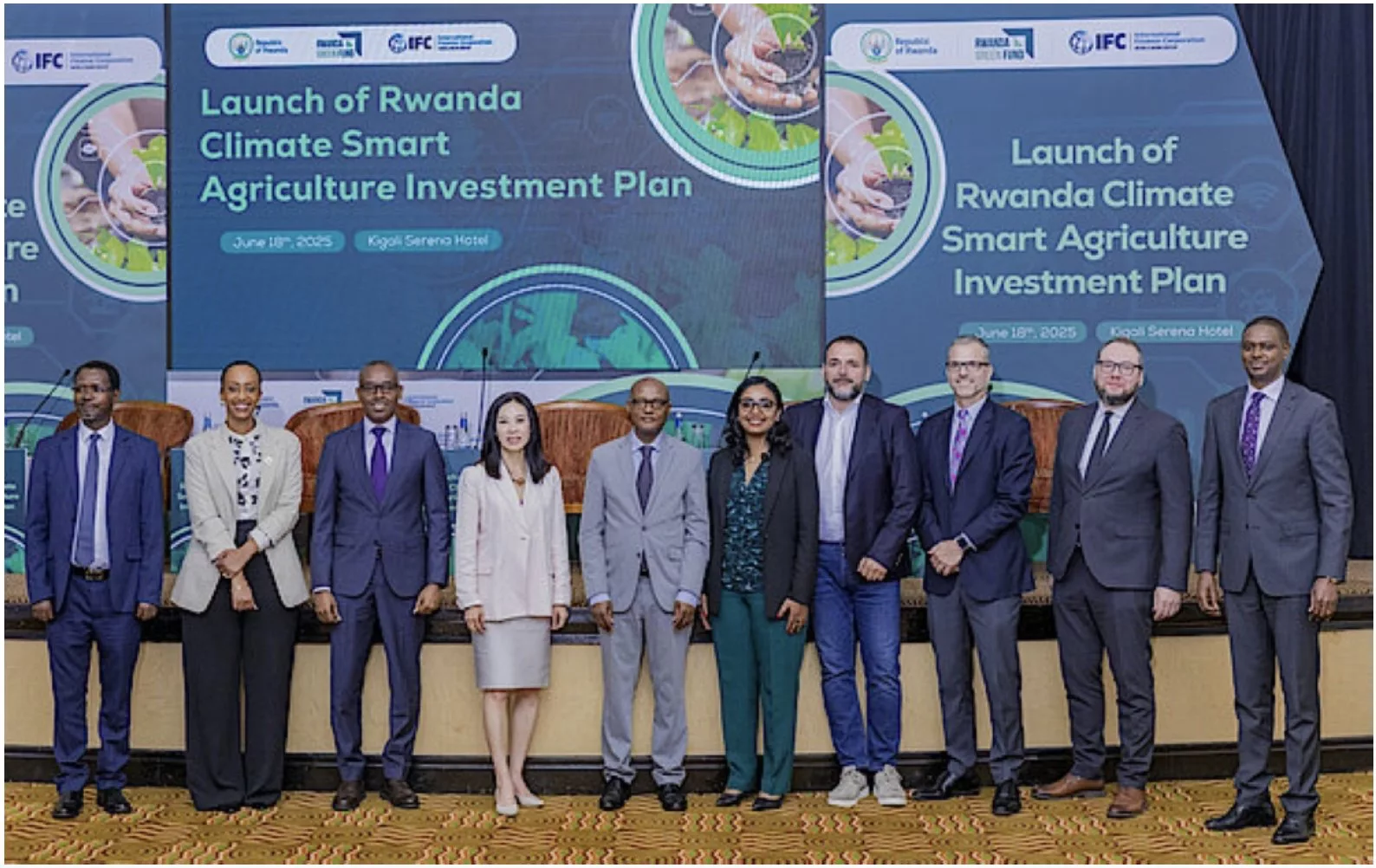|
Getting your Trinity Audio player ready...
|
On 12th December 2024, the Zimbabwe delegation presented its Country Progress Report on the Resolutions from the 55th SADC Parliamentary Forum Plenary Assembly Session held in Luanda, Angola from 2nd to 7th July 2024. The report reaffirmed Zimbabwe’s commitment to the promotion of renewable energy, enhancement of policies towards women advancement, regional integration, climate resilience, gender equality, youth empowerment and sustainable development as outlined in the resolutions adopted at the Forum.
Speaker Mudenda’s report, ably presented by Hon. Maybe Mbowa, Member of Parliament and the Chairperson of Zimbabwe’s Women’s Parliamentary Caucus, emphasized the laudable strides made by Zimbabwe in implementing resolutions of the July 2024 Plenary Assembly as follows;
The Report on the resolution under the theme: “The Role of Parliaments in Promoting Renewable Energy Policies in the SADC Region and Creating a Single Regional Energy Market”.
Recommendation number one (1) “Urges Member Parliaments to enact and amend national laws that encourage investment in renewable energy technologies, including solar, wind, biomass, and hydropower, to align with global climate objectives”. The Second Session of the 10th Parliament of Zimbabwe prioritized the amendment of the Rural Electrification Fund Act to expedite the installation of renewable energy mini grids in the rural areas. Additionally, Parliament in conjunction with the Executive, is facilitating the rolling out of the National Energy Efficiency Policy to enhance investments in new energy generation plants.
Recommendation number two (2) “Urges Member States of the SADC region to support legislation that promotes the development of renewable energy infrastructure, ensuring that investments are directed toward innovative and scalable energy solutions that can be adopted at both national and regional levels”. In line with this trajectory, the National Renewable Energy Policy (NREP) is already in place and lays the groundwork for renewable energy development in the country with an ambitious target of attaining installed capacity of 1,100 MW by 2025 and 2,100 MW by 2030. To regulate the sector, the Energy Regulatory Authority Act (ZERA Act) created the Zimbabwe Energy Regulatory Authority (ZERA) whose mandate is to oversee the licensing of Independent Power Producers (IPPs). Furthermore, the Joint Sustainable Development Goals (SDG) Renewable Energy Fund is a significant initiative aimed at addressing financing barriers in the renewable energy sector. This fund promotes local infrastructure investments and supports gender-responsive and inclusive renewable energy projects.
Report on the resolutions under the theme: “Enhancing the Role of Parliament in Empowering Women for Economic Prosperity in the SADC Region Removing Barriers to Financial Inclusion of Women”.
Recommendation number one (1): “Calls on Member Parliaments to promote the integration of SADC Strategy on Financial Inclusion and Small and Medium Enterprises (SMEs) Access to Finance (2023-2028) and its implementation by SADC Member states”. In conformity with this resolution, Parliament enacted the Zimbabwe Microfinance Act which promotes financial inclusion, especially for women. The Act provides a legal framework for microfinance institutions to operate and offer financial services to underserved populations, including women and youths, as well as persons with disabilities. Furthermore, the Zimbabwe Women’s Microfinance Bank, established under this framework is meant to avail business finance for, specifically targets women, particularly those in rural areas and marginalized persons with disabilities.
Recommendation number four (4): “Urges member states to take key actions to improve the financial inclusion of women entrepreneurs, including gender-responsive planning and budgeting, such as providing tax reliefs or subsidies to encourage the growth of women-led ventures, and gender-responsive procurement by mainstreaming gender in procurement, empowering women entrepreneurs, sourcing strategically, subcontracting and managing and improving performance through bench marking and capacity building.” In keeping with this recommendation, the Government of Zimbabwe made a significant commitment to gender equality by introducing Gender Responsive Budgeting (GRB) through the Budget Call Circular Number 1 of 2021 from Treasury which made it mandatory for all public institutions to mainstream gender and allocate resources for gender in their budgets. This initiative aims to ensure that the budgeting process is gender sensitive. To promote gender-sensitive procurement, the Procurement and Disposal of Public Assets Act (Chapter 22:23) section 29 (b) encourages the participation of women and other marginalized groups in public procurement by setting aside a portion of contracts specifically for these groups. It mandates that procuring entities consider gender balance when awarding contracts as a way of promoting equity for women’s participation.
Recommendation number six (6): “Calls upon member states to develop and promote financial products specifically designed for women, such as savings accounts, microloans and insurance, tailored to meet their unique needs and preferences”. To this end, the Cooperatives Act in Zimbabwe provides for the formation, operations and regulation of cooperatives, promoting self-help and economic empowerment initiatives for women in communities. In addition, the proposed Savings and Credit Cooperative Societies (SACCOs) Bill is designed to enhance financial inclusion for women and youths through savings and access to credit for emerging enterprises.
Recommendation number eight (8): “Implores member states to promote digital financial services, such as mobile banking and e-wallets, to enhance women’s access to banking, payments and savings and to address barriers such as limited internet connectivity and digital literacy”. Parliament, in conjunction with the Reserve Bank of Zimbabwe (RBZ), facilitated the National Financial Inclusion Strategy (2022-2026) which has greatly improved women mobile banking and economic empowerment in the financial services sector. By enhancing access to financial services, promoting safety, and improving financial literacy, mobile banking can play a pivotal role in transforming the socio economic status of women. According to RBZ 2023 data, the National Financial Inclusion Strategy 2022-2026 has increased uptake and usage of mobile money by 63% of the total population and thus is a key driver in formal financial inclusion[1]. Additionally, 72% of households were said to have had access to a bank, micro finance, or mobile money account thereby enabling them to transact digitally[2].
Report on the resolutions under the theme: “Collaborative Approach in Addressing Violence against Women in Elections and Politics in the SADC region-The Role of Parliament”. Recommendation number one (1) “Calls on national Parliaments to ensure a coordinated and collaborative approach with other stakeholders to address all forms of violence against women, through the enactment and enforcement of comprehensive laws, the establishment of robust oversight mechanisms, and the implementation of widespread public awareness campaigns”. The Parliament of Zimbabwe plays a key role in enacting and amending laws that address Gender-Based Violence (GBV), including politically motivated violence against women. To that effect, Parliament enacted the Domestic Violence Act and the Sexual Offences Act, which provide legal protections for survivors and hold perpetrators accountable. Recently, the High-Level Political Compact (HLPC) under the Spotlight Initiative launched in 2021 brought together various stakeholders, including Parliament and the Executive to promote political commitment and engagement to address and curtail Gender Based Violence against women, including during elections.
The Zimbabwe Women’s Parliamentary Caucus has been actively involved in raising awareness among the members of the public and within their constituencies about the dangers of Gender Based Violence Against Women in Elections. The strategy aimed at encouraging women to support each other during any elections. Every year, the ZWPC together with its partners participates in the commemorations of the 16 Days of Activism against Gender-Based Violence. These activities have contributed significantly to increasing awareness among the people on the urgent need to curb GBV.
Report on the resolution on: “Advancing the AU Agenda 2040 for Children: Strengthening Parliamentary Engagement for Child-centred legislation and policies”.
Recommendation number five (5): “Encourages national Parliaments to support legislation and policies aimed at achieving universal access to quality education, particularly for marginalized and vulnerable children, and expand healthcare services to include comprehensive child health and mental health support”. The Education Amendment Act in Zimbabwe represents a significant step towards enhancing the protection of child rights within the educational system. This Act aims to address various issues related to access to education, the quality of education, and the overall well-being of learners in schools.
Report on the resolution on the theme: “Role of Parliament in Mitigating Electoral Risks and Building Greater Resilience into Electoral Processes in the SADC Region.”
Recommendation number one (i) “Calls for the establishment of regular dialogue and cooperation between EMBs and Parliaments to address emerging electoral challenges in view of their important respective roles in enhancing electoral integrity in the SADC region.” In line with this recommendation, the Electoral Code of Conduct for Political Parties and Candidates and Other Stakeholders, contained in the Fourth Schedule of the Electoral Act of Zimbabwe, section 12 (1) provides that Political Parties will participate in multiparty liaison committees chaired by the Zimbabwe Electoral Commission (ZEC). The meetings are aimed at facilitating dialogue, gathering insights, and ensuring that parties are well-informed about the electoral process.
Recommendation number four (iv) “Calls for the establishment of robust regulatory frameworks by national Parliaments in the SADC region to address misinformation and disinformation and regulate social media during elections in order to eliminate harms such as cyber violence and safeguard the integrity of electoral processes.” The Cyber and Data Protection Act of Zimbabwe, enacted in 2021, serves as a crucial legal framework designed to regulate online activities, protect personal data, and combat cybercrime, including the challenges posed by disinformation and misinformation through the abuse of Artificial Intelligence. It establishes measures to enhance cybersecurity and thereby protects the integrity of the information economy against unauthorized access and malicious activities to the public.. In addition, the Act places responsibilities on online platforms and service providers to monitor and manage content shared on their sites. This includes taking action against users who disseminate false information.
Report on the resolution on: “Progress, opportunities and challenges for SADC Member States under the African Continental Free Trade Agreement, Agenda 2063 and Programme for Infrastructural Developmental for Africa: Re-Harnessing the Role of Members of Parliament in Regional Trade and Economic Integration”.
Recommendation number four (4): “Appeals to SADC Member States to institute value addition laws and policies on the production of critical minerals such as lithium and chrome before export to ensure that locals benefit wholly through employment creation, contribution to revenue collection and industrialization”. The Zimbabwean government imposed a 5% tax on unprocessed ore, which was later reduced to 1% after all Lithium producing companies submitted their beneficiation plans by the Second Quarter of 2024. Furthermore, Lithium and Chrome beneficiation was given a span of not more than 5 years. No licensees are being granted to prospective lithium and chrome companies without the approval of a beneficiation plan. Recommendation number five (5) “Urges Members States to stay informed and actively participate in ongoing trade negotiations, addressing issues like tariffs, rules of origin, investment and digital trade”. Following Zimbabwe’s ratification of the African Continental Free Trade Area (AfCFTA) Agreement, on completion of negotiations on the rules of origin in 2023, we joined other 41 countries in submitting “Schedules of Tariff Concessions” to the AfCFTA Secretariat.
Recommendation number six (6): “Urges SADC Members States to enact appropriate policies and legislation that facilitate industrialization and modernization of critical sectors such as agriculture to ensure food security”. Presently, a New Industrial Policy is being drafted which will take effect after the launch of the National Development Strategy 2 in 2025. Furthermore, Zimbabwe recently launched the Zimbabwe Industrial Growth Plan, which aims to support local industry and reduce reliance on imports. The target is to increase the contribution by the manufacturing sector to at most 33% of GDP. In 2024, the sector is projected to grow by 1.6%, whilst capacity utilization is expected to average 60%.
Recommendation number eight (8) “Urges SADC Member States to institute policies aimed at rehabilitating and upgrading various infrastructures including the rail and air transport system, in accordance with various AU and SADC Legal framework such as PIDA and AIDA”. Zimbabwe has registered remarkable strides in this regard. After successfully upgrading the Robert Mugabe International Airport, the Civil Aviation Amendment Bill is being aligned with international regulatory frameworks best practices. Major roads are being habilitated, linking cities and neighbouring countries to meet Southern Africa Transport and Communications Commission (SATCC) standards.
Report on the resolution on: “Enhancing the Role of Regional Parliamentary Model Laws Oversight Committee in Monitoring the Domestication of SADC Model Laws and Implementation of related policies and Laws through Structured Reporting Frameworks and Mechanisms: A Look at the Domestication of the Sendai Framework for Disaster Risk Reduction”.
Recommendation number one (i) “Implores SADC parliaments to intensify efforts in domestication initiatives by developing strategies to raise awareness on targeted laws collaborating with partners and mobilizing resources to strengthen the capacity for the domestication of Model Laws”. Zimbabwe aims for a collective, and holistic approach to effectively implement Disaster Risk Reduction (DRR) strategies and programmes. Mainstreaming DRR in development planning across all sectors of the Zimbabwean economy is seen as the panacea to heighten mitigation, preparedness, adaptation capacity, and resilience building in the country. This is done to conform to the National Vision 2030, the Sendai Framework for Disaster Risk Reduction (2015-2030), the Paris Agreement on climate change, as well as the Sustainable Development Goals, among others. Additionally, Disaster Risk Management policies and strategies that include the Disaster Risk Management Bill, Public Health Act, Environmental Management Act, Road Traffic Act, as well as Disaster Risk Management preparedness plans and strategies are aligned to regional and international frameworks for disaster risk management.
Recommendation number six (vi) “Urges Member Parliaments to assess community concerns at the grassroots level regarding DRR and to ensure the implementation of mitigation strategies that safeguard constituents and promote proactive approaches to disaster management”
The Disaster Risk Management (DRM) architecture in Zimbabwe takes cognisance of communities as a crucial and powerful institution in DRM. To that end, the Civil Protection Department leverages support from development partners and community-based organizations in conducting Community-Based Disaster Risk Management programmes. The country`s Early Warning Systems are anchored by existing regional and international bodies such as the SADC Climate Services Centre, Famine Early Warning Systems (FEWSNET), World Meteorological Organization (WMO) and indigenous knowledge systems at the community level. Importantly, the establishment of community radios across the country has enhanced the dissemination of pertinent information in local languages.
Responses to specific questions
Transformation of the Forum into a SADC Regional Parliament
Zimbabwe signed the Agreement Amending the Treaty for the Transformation of the SADC PF into a Regional Parliament and will endeavour to influence the Executive to ensure that the Protocol Establishing the Parliament is signed as the final process to complete the Transformation matrix.
Addressing the Impact of Inflation on the Budget of the Forum
The Parliament of Zimbabwe acknowledges the financial challenges posed by inflation and remains committed to the Forum’s vision and Transformation agenda. Zimbabwe supports exploring measures to ensure sustainability, including the proposed increase of subscriptions as from April 2026.
Secondment of Senior Parliamentary Staff to the Forum
Zimbabwe will advise when ready to second staff to the Forum. However, the Institution stands ready to second Staff on ad-hoc basis, as has always been the case.
Election Observation
While Zimbabwe acknowledges the importance of participating in Election Observation Missions (EOMs), competing national interests have hampered full participation. However, Zimbabwe remains committed to regional electoral integrity and will explore options for financial and human resource contributions in the future.
Designation of a Focal Person to Monitor Domestication of Model Laws
Zimbabwe has designated the Team of SRHR Researchers as focal persons within Parliament to support the Regional Parliamentary Model Laws Oversight Committee (RPMLOC). The appointed team will facilitate the monitoring of domestication efforts and ensure alignment with the Model Laws adopted by the Forum. Implementation of the 2023-2026 SRHR and Governance Project
Zimbabwe has made significant progress in implementing the SRHR and Governance Project:
- The Agreement to implement the project has been signed and the launch took place on 3rd October 2024.
- Parliament has utilized allocated resources to conduct awareness campaigns and stakeholder engagements.
Domestication of SADC PF Model Laws and Related Policies/Instruments
Zimbabwe has made notable strides in domesticating SADC PF Model Laws and related policies. For example, the SRHR Project funded the Joint Committee on Justice, Legal and Parliamentary Affairs and Human Rights at the Parliament of Zimbabwe to carry out Public Hearings on the Death Penalty Abolition Bill [H.B. 5, 2023], Administration of Estates Amendment Bill [H.B. 3, 2024], & Criminal Laws Amendment (Protection of Children and Young Persons) [H.B. 4, 2024]. This resulted on the Criminal Laws Amendment (Protection of Children and Young Persons) Act, 2024 (No.1)
Zimbabwe remains committed to advancing regional integration and legislative harmony within the SADC framework.
The Plenary Assembly meeting is continued on 13th December 2024, further receiving reports of the Standing Committees, including the reports from the Standing Committee on Gender Equality, Women Advancement and Youth Development, and the Regional Women’s Parliamentary Caucus. The curtain will be drawn for the highly successful Plenary Assembly which has been punctuated by high-profile deliveries from the Parliament of Zimbabwe, including the Vote of thanks during the official opening programme, as Host of the 57th Plenary Assembly Session to take place in June 2024. The Speaker also delivered a moving tribute during the Valedictory Cocktail Dinner in honor of Professor Peter Hitjitevi Katjavivi, his bosom friend and esteemed Speaker of the Parliament of Namibia. He is a long-serving member of the SADC PF Executive Committee who retired.






